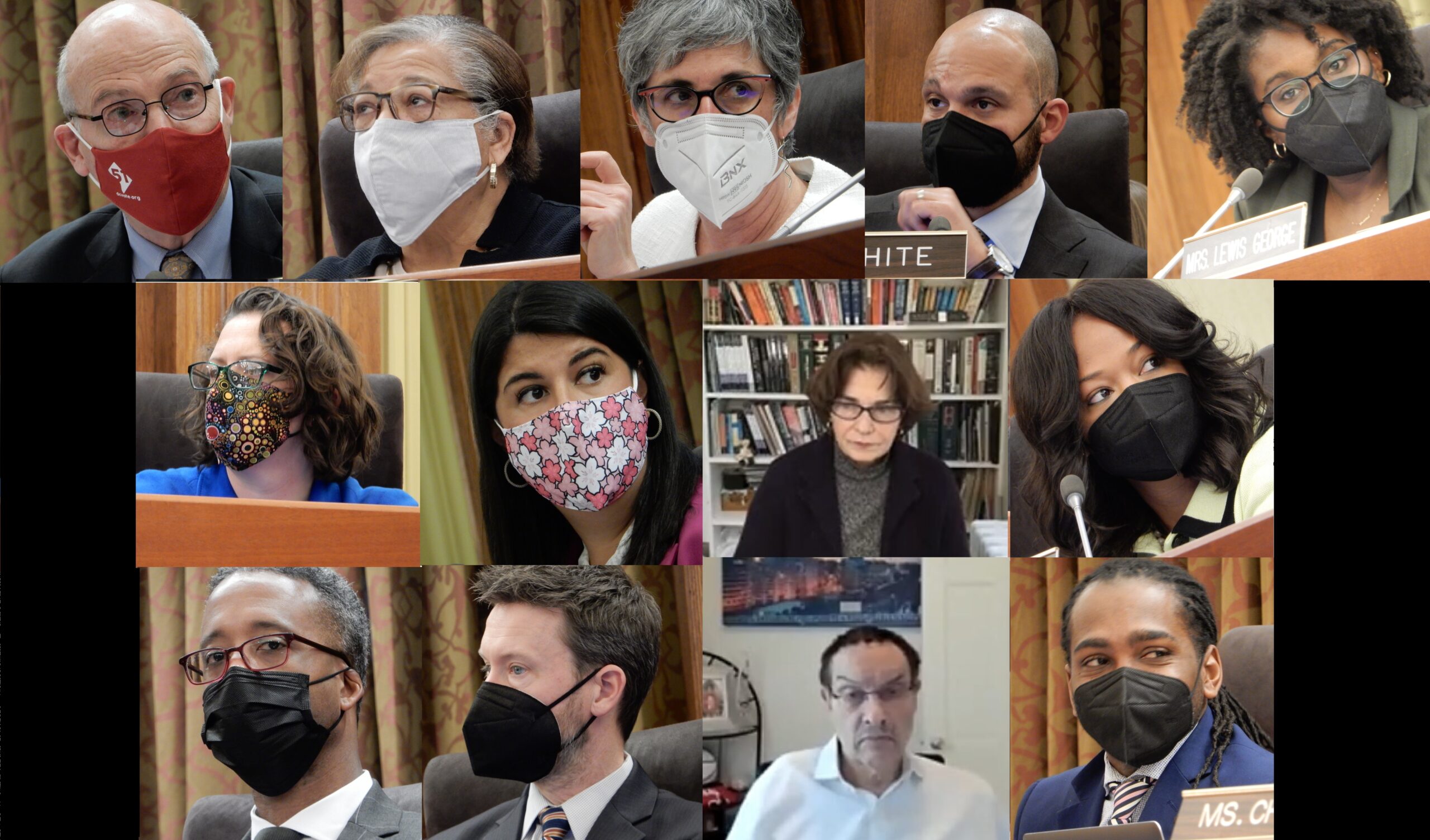Council Expands Eviction Protections, Targets Government WhatsApp Communications, Strengthens Tree Safeguards

At its most recent Legislative Meeting, the Council passed a batch of pragmatic, real-world legislative changes that will each provide direct impacts on everyday District residents.
Likely the most substantial and detailed of the bills was the final passage of an omnibus eviction reform measure. After the first of two necessary votes back on January 4, the bill’s second vote was postponed from February to March. Final changes occurred right up until meeting time, but the bill then passed unanimously.
A major component of the bill was the sealing of eviction records. Records in situations where the landlord lost the eviction case, or withdrew their claim, would be sealed immediately. All other eviction records would be sealed after three years. The bill will also for the first time set a minimum dollar amount under which evictions cannot be filed: $600. In its rental fairness provisions, the bill set a maximum rental application fee of $50, ensures that tenants receive complete information regarding the tenant screening process, and prohibits landlords from making an adverse decision based solely on an applicant having no credit score. The bill would also greatly restrict landlords from considering rental subsidy recipients’ rental payment history prior to them receiving the subsidy. The rationale for this action was that past nonpayments could very well have been the cause for the tenant requiring the subsidy in the first place, and that receiving such subsidies would hopefully reduce or eliminate any such nonpayment issues in the future.
Also passed at the most recent meeting was a bill that explicitly states that government communication in the executive branch and in agencies via apps such as WhatsApp is covered by the Freedom of Information Act (FOIA), and that the use of an app’s “auto delete” functions to circumvent the ban on deletion of communications is illegal. Current Council rules already prohibit the use of auto-delete by Council staff.
A bill passed on an emergency basis at the meeting would allow the District Department of Transportation’s Urban Forestry Administration to issue a stop-work order when the District’s largest trees, known as “heritage trees,” are illegally cut down. Prior to this change, developers who cut down such ancient trees could simply pay a substantial fine and immediately proceed with their project. This led to a situation where some developers considered the fine a “cost of doing business,” and built it into their project budget. The threat of a stop-work order will hopefully succeed where the threat of a fine did not—in honoring the intent of the law and guaranteeing that our oldest and largest trees are protected.
With an eye towards still-decreasing COVID infections, the Council looked to continue some COVID-era reforms to how alcoholic beverages can be sold and served, and to put in place further reforms in the future. In this bill, passed in the first of two necessary votes, the public dining “streateries” created in DC roadways will be allowed to continue to operate year-round until at least December 31, 2023. Similarly, existing on-premise retailers would be able to continue creating “pop-ups” through the end of 2023. Additionally, the bill would create a new category of liquor license for single mixed-use developments to allow outdoor consumption of alcohol anywhere on the premises. The bill also included provisions to create third-party liquor delivery licenses, loosen the terms of Georgetown’s liquor license moratorium, provide additional incentives for new Ward 7 and 8 grocery stores, and allow brew pubs to self-distribute their beers.
The Council tacked onto a separate bill yet another extension in the use of paper visitor parking pass permits that were supposed to expire in 2020. Recently extended through the spring, this latest Council action extends them even further, until November 25, 2022. The parallel pilot online visitor parking pass program will also continue to be in use during this time.
A bill passed by the Council eliminates a longtime inequity in DC law which allowed charter school teachers, but not public school teachers, to run for the State Board of Education. The Council discussed the legislative history of, and rationale for, keeping executive branch employees off of boards and commissions in the name of protecting their independence. But in the end, the bill as passed addressed the inequity by allowing public school teachers to run for State Board seats (rather than the other way of leveling the playing field, which would have been to take away charter teacher’s ability to run).
In other action, the Council also:
- Finally approved the timetable for the decennial redistricting of Advisory Neighborhood Commissions and their Single Member Districts. Due to federal Census data being provided much later than normal, the timeline between the completion of the Ward redistricting process and Election Day in November is far shorter than usual. A compromise timetable considered reasonable from both a redistricting and an election preparation standpoint was approved at the Council’s most recent meeting.
- For the third straight school year, waived the 100-hour community service requirement usually imposed on public school seniors, due to the COVID pandemic
- Delayed implementation of a previously-approved ban on non-compete agreements from April 1 of this year until October 1 of this year
- Delayed the deadline for the final report of the Council’s Special Committee on COVID-19 Pandemic Recovery until March 31 of this year
The Council’s next scheduled Legislative Meeting will be held on April 5.